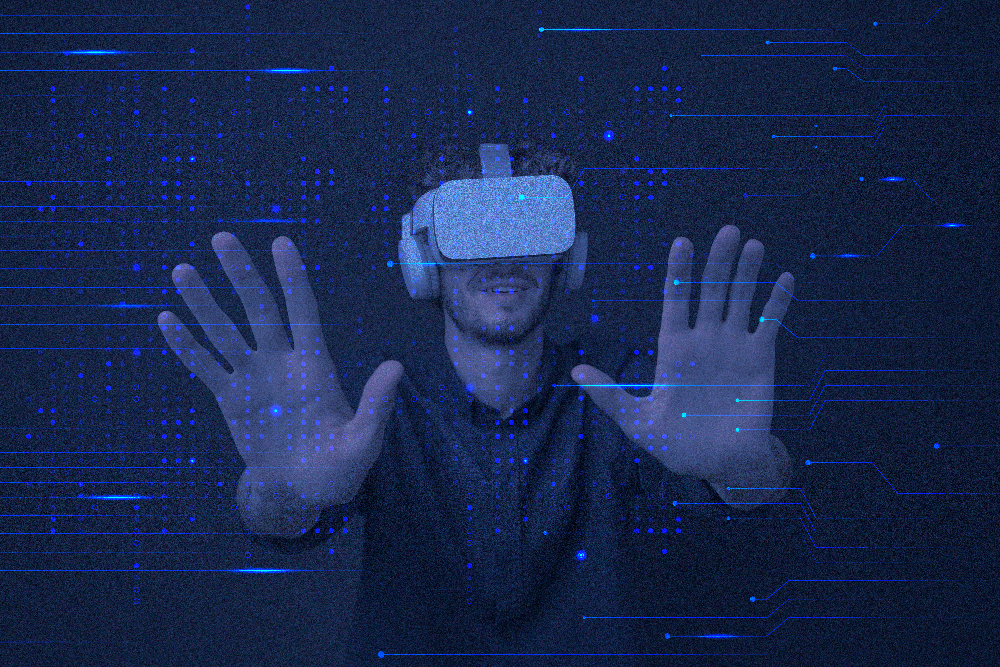
step. These devices, blending style with advanced functionality, hold the promise of revolutionizing how we interact with the digital world. Thanks to advancements in artificial intelligence (AI), the potential of smart glasses is being amplified even further. As AI continues to evolve, smart glasses are becoming more capable, intuitive, and indispensable, positioning them to be a game-changer in the wearables market.
The Evolution of Smart Glasses
The journey of smart glasses has seen a slow but steady rise. Initial models were largely experimental, with companies like Google introducing their first prototypes years ago. However, the market response was lukewarm due to concerns about privacy, limited functionality, and bulky designs. Fast forward to today, and the introduction of AI into wearables has unlocked unprecedented possibilities, offering users enhanced real-time interaction with their surroundings.
AI-enhanced next-gen smart glasses now combine cutting-edge machine learning algorithms, natural language processing, and real-time data processing, allowing for seamless user experiences. Whether it’s reading text, providing navigation assistance, or translating languages, smart glasses are evolving into powerful everyday tools.
AI’s Role in Transforming Smart Glasses
The integration of AI has been crucial in transforming smart glasses from gimmicky gadgets into practical wearables. AI adds several layers of functionality, transforming smart glasses into more than just a heads-up display.
- Real-Time Object Recognition: AI algorithms allow smart glasses to recognize and interpret objects, locations, and even facial expressions. This capability can provide users with information about their surroundings, from identifying products in a store to recognizing people in a social setting.
- Contextual Assistance: AI makes smart glasses contextually aware, meaning they can understand where a user is and what they are trying to do. For instance, AI-driven smart glasses can provide immediate guidance when shopping by offering product suggestions or displaying nutritional information while picking up groceries.
- Personalized Experiences: AI can learn from user behavior, preferences, and habits to offer more personalized experiences. Imagine your smart glasses reminding you of appointments, suggesting a new route to work due to traffic, or even adjusting the tint of the lenses based on lighting conditions.
- Voice Interaction and Language Translation: With built-in AI, smart glasses can process voice commands in real-time, allowing users to interact hands-free. This feature is especially beneficial for travelers, as AI can translate foreign languages in real-time, making navigation and communication smoother.
- Health Monitoring: AI-enhanced smart glasses can also serve as wearable health monitors, tracking vital signs, detecting stress levels, and even providing mental health assessments. By incorporating biometric sensors, they can offer users a new way to monitor their well-being.
The Wearable of the Future
AI-powered smart glasses are set to redefine the wearables industry by offering augmented intelligence that merges the physical and digital worlds. As companies like Apple, Microsoft, and other tech giants continue to develop and refine this technology, we can expect these devices to become even more integrated into our daily lives.
The advancements in AI are also enabling smart glasses to have smoother user interfaces, longer battery life, and more accurate sensors. Coupled with 5G networks, which allow for faster data processing and low-latency connectivity, the future of AI-enhanced smart glasses is both exciting and inevitable.
Use Cases and Industry Impact
AI-enhanced smart glasses could impact various industries:
- Healthcare: Surgeons could use smart glasses for AI-assisted operations, allowing them to access patient data in real-time while performing procedures. The glasses could also display overlays of scans or x-rays during surgery.
- Education: Teachers and students can benefit from AR-powered lessons, with AI providing real-time insights and visuals, making complex subjects easier to grasp.
- Retail: Retail employees could use AI-powered smart glasses to improve customer service by instantly accessing inventory data, providing product recommendations, or even processing payments through voice commands.
- Manufacturing: AI-powered smart glasses can assist workers on the factory floor by overlaying instructions and identifying problems in real-time, ensuring greater efficiency and safety.
Mirrar Virtual Reality and AR: Shaping the Future of Wearables
As AI continues to drive innovation in wearables, platforms like Mirrar Virtual Reality and Mirrar Augmented Reality are pushing the envelope even further. Mirrar’s cutting-edge AR and VR technologies are already transforming industries, offering deeply immersive digital experiences that enhance the way we interact with the world.
By combining AI with their advanced virtual and augmented reality solutions, Mirrar is setting the stage for even more groundbreaking wearables, ensuring that users have access to the latest in augmented intelligence and interactive technology. From healthcare to retail, Mirrar’s solutions are paving the way for the next generation of wearable devices that are smarter, more intuitive, and more responsive than ever before.
With AI-enhanced smart glasses and platforms like Mirrar leading the charge, the future of wearables is not just bright—it’s revolutionary.
